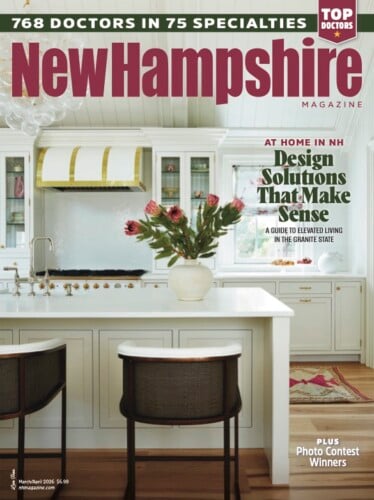Criterion for Evaluating Nominations

The New Hampshire Nurses Association’s Excellence in Nursing Task Force has developed the following information to facilitate the nomination process for the Excellence in Nursing Awards. Each criteria should be evident within the nomination submitted.
For each of the fourteen awards the Task Force has identified 5 criteria. Each criterion will be rated on a scale of 1 to 5 for total possible score of 25 per nomination. The Task Force has also identified the nursing care areas covered under each category. (There is some overlap in these categories. Nominators should pick the category that best suites the nominee.)
2025 Excellence in Nursing Categories
Advanced Practice Nursing
This category recognizes an Advance Practice Registered Nurse working in any practice setting, including nurse practitioners, clinical nurse specialists, nurse anesthetists, and nurse midwives.
- Demonstrates contributions in clinical practice.
- Demonstrates contributions to healthcare policy.
- Demonstrates contributions to Advance Practice education.
- Demonstrates contributions in leadership.
- Demonstrates contributions within professional organizations.
Ambulatory Care Nursing
This category recognizes a nurse working in the ambulatory care setting and includes nurses in care coordination, dialysis, clinic-based nursing, and telehealth nursing (based on Association Ambulatory Care Nursing defining characteristics).
- Demonstrates critical reasoning and astute clinical judgment to expedite appropriate care and treatment.
- Provides high quality care across the life span to individuals, families, caregivers, groups, populations, and communities.
- During each encounter, focuses on patient safety and the quality of nursing care by applying appropriate nursing interventions (i.e. identifying, clarifying patient needs, conducting health education, promoting patient advocacy, coordinating care, assisting the patient to navigate the health care system, and evaluating patient outcomes).
- Acts as partner, advocate, and advisor, assists and supports patients, families, and caregivers in the optimal management of their health care, respecting their culture and values, individual needs, health goals, and treatment preferences.
- Facilitates continuity of care using the nursing process, inter-professional collaboration, and coordination of and access to appropriate health care services and community resources across the care continuum.
Critical Care Nursing
This category recognizes a nurse working in critical care, including intensive care, progressive care units (telemetry), perianesthesia care unit (PACU), or pediatric intensive care units.
- Demonstrates knowledge, skills and continuing education in critical care nursing for Best Clinical Practice.
- Demonstrates excellence in patient/family care, communication, education and advocacy.
- Engages in collaboration and provides care coordination.
- Demonstrates professionalism and leadership.
- Demonstrates community engagement.
Emergency Nursing
This category recognizes a nurse working as an emergency nurse, flight nurse, or urgent care nurse.
- Demonstrates practice excellence in emergency nursing.
- Provides evidence of knowledge creation and dissemination.
- Engages in community service.
- Demonstrates professional engagement.
- Demonstrates advocacy.
Front Line/Administrative Nurse Leader
This category recognizes a front line or administrative nursing leader and includes nursing supervisors, clinical leaders, informal/project leaders (infection control, onboarding), or functional leaders (leaders without direct reports).
- Supports the established vision and inspires colleagues to reach shared goals.
- Engages, motivates and develops peers.
- Fosters service excellence.
- Fosters and encourages team collaboration.
- Builds and manages relationships.
Gerontology Nursing
This category recognizes a nurse working in gerontologic care or long-term care and includes nurses working in skilled nursing, assisted living, intermediate care, or dementia/memory care.
- Demonstrates excellence in nursing practice.
- Acknowledged as a champion of the hospice and palliative care and/or gerontologic nursing specialty area.
- Engages in care coordination.
- Demonstrates commitment to life-long learning.
- Demonstrates leadership and advocacy.
Maternal-Child Health Nursing
This category recognizes a nurse working in prenatal care, high-risk maternal-fetal care, intrapartum care, postpartum care, newborn special care, or newborn intensive care.
- Demonstrates commitment to a positive professional work environment for care of women and newborns.
- Advocates for diversity among colleagues and social responsibility in the care of women and newborns.
- Demonstrates integrity in exemplifying the highest standards of professional behavior in the care of women and newborns.
- Promotes nursing excellence for quality outcomes in practice, education, research, advocacy and/or management in the care of women and newborns.
- Generates knowledge to enhance the science and practice of nursing to improve the health of women and newborns.
Medical Surgical Nursing
This category recognizes a nurse working in acute care settings and includes nurses working on in-patient units, including medical-surgical units, post-operative care units, wound care nursing, same day surgery or operating suites.
- Leadership: always models professional behavior, engages in conflict resolution, and actively advocates for patients, healthy work environments and the nursing profession.
- Collaboration: is a patient-care coordinator acting in collaboration with patient, family, significant other and healthcare providers, facilitating clear communication in an ethical manner while maintaining the most effective use of resources to decrease healthcare costs to system and patients.
- Research: uses research and/or evidence-based practice(s) to improve clinical care and identifies clinical problems for research studies; engages in and/or collaborates in the research process.
- Practice/Growth: engages in self-evaluation to identify practice development and actively seeks learning opportunities through continuing education, formal education, certification, experiential learning and collegiality as well as recognizes the need to share knowledge and teach others on the unit, within the facility and in the community
- Professional Engagement: promotes professional nursing through academic achievement and community outreach.
Professional Nurse Educator
This category recognizes a nurse involved in education who works to advance the knowledge, skills and professionalism required for patient-centered care. This includes active nursing education activities in environments such as: nursing professional development (organizational settings); nurse education (academic settings) and nurse education (clinical settings).
- Establishes a stimulating and engaging learning environment to generate and transmit knowledge to improve nursing practice.
- Facilitates continuous learner development/socialization for nursing students and/or practicing nurses.
- Demonstrates leadership qualities, including but not limited to: adaptability, creativity, diplomacy, integrity and decisiveness.
- Involves one’s self in patient or community advocacy and public service consistent with national health care priorities.
- Contributes to the continuous quality improvement of nursing education with the generation of new knowledge or translation of current knowledge to reflect evidence-based practice.
Nursing Informatics
This category recognizes a nurse involved in nursing informatics who works to “integrate nursing science with multiple information and analytical sciences to identify, define, manage and communicate data, information, knowledge and wisdom in nursing practice” (ANA – https://www.himss.org/resources/what-nursing-informatics).
- Serve as a catalyst for developing strategic plans and creating departmental or system policies and procedures, while serving as the champion for integrated projects and systems.
- Promotes research and or scholarly activities for improving patient care and evidence-based nursing practice.
- Develops program-based work flows to improve delivery of care. Analyzes interactions between clinical workflows and clinical systems i.e. interaction of people processes and technology.
- Adheres to standards of practice, integrating evidence-based practice to promote patient safety in the use of health information technology.
Nurse Innovator/Entrepreneur and Quality Improvement
This category recognizes a nurse who is an innovator/entrepreneur (product developer or healthcare delivery), or quality improvement nurse.
- Acknowledged as a champion in innovation/entrepreneurial/quality improvement nursing.
- Promotes research and or scholarly activities for improving patient care and evidence-based nursing practice.
- Effectively communicates within interdisciplinary team.
Pediatric & School Nursing
This category recognizes nurses working with the pediatric population (primary care, in-patient pediatric setting, camp) or in a school setting.
- Follows standards of practice set by the specialty practice areas of pediatrics and/or of school nursing.
- Provides family centered care, addressing needs of the whole family.
- Demonstrates leadership qualities such as professionalism, problem solving, integrity, collaboration, adaptability and engagement.
- Engages in quality improvement initiatives and utilizes evidence-based interventions to improve the care of pediatric patients.
- Contributes to community.
Psychiatric & Mental Health Nursing
This category recognizes a psychiatric and mental health or substance use disorder, nurse working on in-patient units, or in community-based care.
- Demonstrates excellence in practice in psychiatric and mental health nursing.
- Demonstrates excellence in leadership.
- Demonstrates excellence in innovation.
- Demonstrates excellence in education.
- Demonstrates excellence in research.
Public Health Nursing
This category recognizes nurses working in the community setting including home care, correctional nursing, occupational health, a public health department, or parish nursing.
- Works collaboratively.
- Utilizes evidenced-based practice.
- Demonstrates expertise in caring for target population(s).
- Demonstrates expertise in social determinants of health (SDH).
- Demonstrates experience in policy change.
Senior Nurse Leader
This category recognizes a senior nursing leader and includes nursing directors, vice presidents, or chief nursing officers.
- Establishes common vision and goals.
- Engages, motivates, and develops people.
- Fosters service excellence.
- Builds strong teams.
- Builds and manages relationships.
Nomination prompts
Clear and Concise Introduction
- Purpose: Briefly introduce the nominee and the context of the nomination.
- Example: “I am honored to nominate Tina Louise for the Nurse of the Year Award at the Annual Nurses Excellence Awards Ceremony. Tina has consistently demonstrated extraordinary dedication, skill, and compassion in her role as a pediatric nurse.”
Detailed Achievements and Contributions
- Purpose: Clearly describe the nominee’s accomplishments, emphasizing their significance and impact.
- Example: “Tina has implemented a new patient education program that has significantly improved health outcomes for pediatric patients. Her initiative has increased parental understanding of post-discharge care, leading to a 25% reduction in readmission rates.”
Quantifiable Evidence
- Purpose: Support the achievements with data and specific examples.
- Example: “Tina’s leadership in the pediatric unit has resulted in a 30% increase in patient satisfaction scores. She has also mentored 15 new nurses, helping them develop critical skills and confidence in their roles.”
Personal Qualities and Leadership Skills
- Purpose: Highlight the nominee’s personal attributes that contribute to their success.
- Example: “Tina is known for her exceptional empathy and communication skills. Her ability to connect with patients and their families has created a trusting and comforting environment, which is particularly important in pediatric care.”
Impact on the Community or Field
- Purpose: Demonstrate the broader impact of the nominee’s work on the community or industry.
- Example: “Tina’s advocacy for children’s health extends beyond the hospital. She volunteers with local health education programs, raising awareness about preventive care and healthy lifestyles. Her community outreach has benefited hundreds of families.”
Testimonials and Endorsements
- Purpose: Include quotes or statements from others who can attest to the nominee’s contributions and character.
- Example: “Dr. Sarah Brown, a colleague, says, ‘Tina’s dedication to her patients is truly inspiring. She goes above and beyond to ensure each child receives the best possible care. Her positive attitude and unwavering commitment make her an invaluable member of our team.'”
Professional Presentation
- Purpose: Ensure the submission is well-written, free of errors, and professionally formatted.
- Example: Use clear headings, bullet points, and proper grammar to enhance readability.
Conclusion
- Purpose: Summarize the nominee’s qualifications and express strong support for their consideration.
- Example: “In summary, Tina Louise’s outstanding clinical skills, compassionate care, and significant contributions to pediatric nursing make her a deserving candidate for the Nurse of the Year Award. I wholeheartedly endorse her nomination.”
Additional Tips:
- Follow the Guidelines: Adhere to the nomination criteria and guidelines provided by the awarding organization.
- Be Specific: Avoid vague statements; provide concrete examples and evidence.
- Show Passion: Convey enthusiasm and genuine belief in the nominee’s worthiness for the award.
By incorporating these elements, a nomination submission can effectively showcase the nominee’s strengths and make a compelling case for their recognition.







